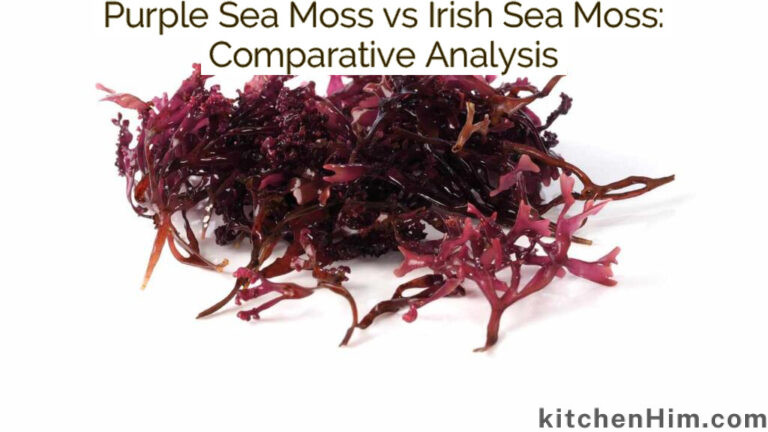Sunscreen and oil are two popular products used for sun protection. This article will discuss the chemical composition, uses, benefits, application and removal, health and skin effects, and cost comparison of both sunscreen and oil. It will provide a comprehensive overview of the differences between sunscreen and oil.
Key Takeaways
Sunscreens and oils offer different advantages and disadvantages depending on the desired outcome. Sunscreens are chemical-based products designed to protect skin from the sun’s harmful UV rays, while oils are natural products designed to moisturize and protect the skin.
The key differences between sunscreens and oils are:
- Sunscreens must be applied more regularly than oils.
- Sunscreens are more expensive than oils.
- Oils are more difficult to remove than sunscreens.
- Oils can block pores, whereas sunscreens do not.
- Sunscreens provide protection from the sun’s UV rays, whereas oils provide nourishment.
- Sunscreens are chemical-based, while oils are natural.
- Sunscreens are more likely to cause skin irritation than oils.
Both sunscreens and oils can provide protection and nourishment for the skin, but it is important to select the product that best suits individual needs.
Chemical Composition
Sunscreen and oil differ in their chemical composition. Sunscreen is a topical product that uses a combination of organic and inorganic chemicals to protect the skin from the sun’s ultraviolet (UV) rays. These chemicals absorb, reflect, or scatter the UV radiation, thus preventing it from reaching the skin. Sunscreen typically contains organic compounds such as benzophenones, cinnamates, salicylates, and anthranilates, as well as inorganic components such as zinc oxide and titanium dioxide.
Oil, on the other hand, is made up of a mixture of hydrocarbons, typically of vegetable origin, such as olive, sesame, almond, and avocado oils. The hydrocarbons are composed of long chains of carbon atoms with hydrogen atoms attached to them. These molecules are chemically quite stable, and they do not react with other substances. Thus, unlike sunscreen, oil offers no protection from the sun’s UV rays.
Sunscreen and oil also differ in their physical properties. Sunscreen is a thick, white cream, while oil is a liquid that is usually clear or slightly yellow in color. Sunscreen has a thick, creamy consistency and spreads easily and evenly on the skin, while oil is lightweight and can be easily absorbed by the skin.
Uses and Benefits
The use of sunscreen and oil provide different benefits. Sunscreen is a product that is designed to block ultraviolet radiation from the sun. This helps to reduce the risk of skin cancer, sunburns, and other forms of skin damage. Sunscreen can also help to reduce the signs of aging, such as wrinkles and age spots. Oil, on the other hand, provides different benefits. It can help to moisturize the skin, reduce the appearance of scars, and provide a protective barrier against environmental damage.
The benefits of sunscreen and oil can complement each other, making them useful for different purposes. Sunscreen is generally used for daily protection against the sun, while oil can be used to provide additional moisture and protection.
The following are some of the benefits of using sunscreen and oil:
- Sunscreen helps to protect against UV radiation and reduce the risk of skin cancer.
- Oil provides moisture and helps to prevent dryness and cracking of the skin.
- Sunscreen can help reduce the signs of aging, such as wrinkles and age spots.
- Oil can help to reduce the appearance of scars and provide a protective barrier against environmental damage.
Application and Removal
Applying and removing sunscreen and oil require different techniques to achieve optimal results. Sunscreen is designed to be applied to exposed skin to protect it from ultraviolet (UV) radiation and should be used year-round, even in cooler temperatures. Sunscreen should be applied evenly to all exposed skin, including the face, neck, ears, and any other areas that may get exposed to sun. Sunscreen should be reapplied every two hours, or more often if swimming or sweating. It should also be applied 30 minutes before going outdoors.
Oil, on the other hand, is designed to be used as a moisturizer and can be applied all over the body. It does not protect against UV radiation and should not be used as a substitute for sunscreen. Oil should be applied to damp skin to help lock in moisture and create a barrier to help keep skin hydrated.
Removing sunscreen and oil also requires different techniques. Sunscreen should be removed with a mild soap and warm water. It is important to remove all traces of sunscreen to prevent skin irritation. Oil should be removed with a gentle cleanser or makeup remover. It is important to use a cleanser that is designed for the face to avoid irritating the skin. After cleansing, it is important to rinse with warm water and pat dry with a soft towel.
Health and Skin Effects
Using sunscreen and oil on the skin can have both positive and negative effects on overall health and skin health. The health and skin effects of these two substances depend on the type of sunscreen and oil, as well as how they are used.
- Sunscreens are formulated with various chemicals that protect the skin from the sun’s ultraviolet (UV) rays, which can cause sunburn, skin cancer, and premature aging. Sunscreens can also help protect against UV damage, but the ingredients in some sunscreens may have their own potential side effects.
- Some oils, such as mineral oil, can help protect the skin from the sun’s UV rays, but these products may also clog pores and lead to acne. Other oils, such as coconut oil, may also provide some protection from the sun, but are not as effective as sunscreen.
- In general, sunscreen is the best option for protecting skin from the sun’s UV rays. It is important to choose a sunscreen that is appropriate for your skin type and that is formulated with ingredients that are safe for your skin. Sunscreen should also be applied frequently and evenly to ensure maximum protection.
Cost Comparison
Costs associated with sunscreen and oil products vary widely based on factors such as type, brand, and quantity. Generally, sunscreen tends to be more expensive than oil products. The cost of sunscreen is largely dependent on the SPF rating, with higher SPF ratings costing more. Additionally, sunscreen is available in various forms, such as sprays, lotions, and creams, each with its own associated price. On the other hand, oil products offer a considerable cost advantage over sunscreen. Prices for oils are typically lower, and the product can often last longer than sunscreen due to the lesser amount needed for application.
The cost of purchasing sunscreen and oil products can vary depending on the type and brand. Sunscreens made with natural ingredients such as zinc oxide and titanium dioxide tend to be more expensive than those with synthetic ingredients. Additionally, well-known brands of sunscreen often cost significantly more than generic brands. Oils, on the other hand, can vary in cost depending on the type of oil used. For instance, coconut oil, which is widely used as a sunscreen alternative, is typically less expensive than other oils, such as argan oil.
The cost of sunscreen and oil products may also depend on the quantity purchased. Sunscreen is often sold in larger quantities, such as bottles of 8 ounces or more, while oil products tend to be sold in smaller quantities, such as 2-ounce bottles. Additionally, some stores offer discounts when purchasing sunscreen and oil products in bulk, which can help reduce costs.
Overall, the cost of sunscreen and oil products can vary greatly depending on factors such as type, brand, and quantity. Sunscreen is typically more expensive than oil products, although some brands of sunscreen may offer cost advantages. Additionally, discounts may be available when purchasing sunscreen and oil products in bulk.
Frequently Asked Questions
How Often Should Sunscreen Be Reapplied?
It is generally recommended to reapply sunscreen every two hours, or after sweating, swimming, or drying off with a towel. Sunscreen should also be applied after any activity that causes the sunscreen to come off, such as rubbing, sweating, or toweling off. Sunscreen needs to be reapplied more often if the user is in direct sunlight for extended periods of time. Sunscreen must be reapplied liberally and evenly to ensure the best protection from the sun’s harmful ultraviolet rays. It is important to note that reapplying sunscreen does not increase the amount of protection provided, but simply helps maintain the level of protection established when the sunscreen was first applied.
What Type of Sunscreen Is Best for Sensitive Skin?
Sunscreen is an important part of an individual’s skincare routine, especially for those with sensitive skin. For those with sensitive skin, it is important to use a sunscreen that is formulated to provide broad-spectrum protection from both UVA and UVB rays while simultaneously being gentle on the skin. Physical sunscreens, such as those containing zinc oxide and titanium dioxide, are best for sensitive skin as they provide a physical barrier between the skin and the sun’s rays. Additionally, look for sunscreens that are free of fragrances, dyes, and other potential skin irritants. Finally, it is important to apply sunscreen generously and reapply every two hours for maximum protection.
Does Sunscreen Expire?
Sunscreen is an important product for protecting the skin from dangerous ultraviolet (UV) radiation. Many people are unaware that sunscreen has an expiration date. The expiration date is printed on the packaging and should be taken into account when using sunscreen. After the expiration date, the sunscreen may not be as effective, as the ingredients may have begun to break down. This could leave skin unprotected from the sun’s harmful rays. In addition, the sunscreen may not feel as pleasant on the skin, as the texture and smell may have changed. It is therefore important to check the expiration date of sunscreen before using it.
Are There Any Natural Alternatives to Sunscreen?
Sunscreen and other chemical-based products have become popular choices in protecting skin from sun damage and sunburn. However, an increasing number of people are turning to natural alternatives to sunscreen due to concerns about potential health risks associated with chemical sunscreens. Natural alternatives include using physical barriers such as hats, clothing, and umbrellas, as well as natural ingredients such as coconut oil and shea butter. These ingredients are known to provide a natural barrier of protection against the sun’s rays while nourishing the skin at the same time. Additionally, research has shown that certain plant oils, such as red raspberry seed oil, have a natural SPF of 28-50. As a result, natural alternatives to sunscreen are becoming increasingly popular.
Does Oil Provide Any Protection From the Sun?
Oil has been used as a natural skin protectant for centuries. While it does provide some protection from the sun, it is not a complete solution. The SPF (Sun Protection Factor) of oil is generally low, and can range from 2-8. This is not nearly enough to protect skin from the sun’s UV rays. It also does not provide protection from both UVA and UVB rays, meaning that any protection it does provide is limited. Furthermore, oil can cause skin irritation and clog pores, leading to acne and other skin problems. For these reasons, it is not recommended as a reliable form of sun protection.
Conclusion
Sunscreens and oils offer different advantages and disadvantages depending on the desired outcome. Sunscreens are chemical-based products designed to protect skin from the sun’s harmful UV rays, while oils are natural products designed to moisturize and protect the skin. Sunscreens must be applied more regularly and are more expensive than oils. Oils are more difficult to remove and can block pores, leading to skin irritation. Both sunscreens and oils can provide protection and nourishment for the skin, but it is important to select the product that best suits individual needs.




